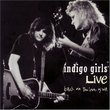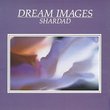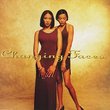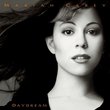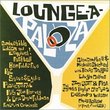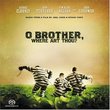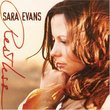| All Artists: Carmen McRae Title: Live at Ronnie Scott's Members Wishing: 1 Total Copies: 0 Label: Drg Release Date: 11/23/1994 Genres: Jazz, Pop, Broadway & Vocalists Styles: Traditional Jazz & Ragtime, Vocal Jazz, Oldies, Vocal Pop, Traditional Vocal Pop Number of Discs: 1 SwapaCD Credits: 1 UPCs: 021471142624, 021471142648 |
Search - Carmen McRae :: Live at Ronnie Scott's
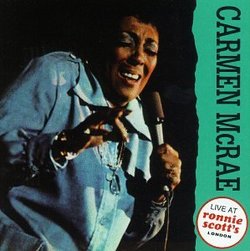 | Carmen McRae Live at Ronnie Scott's Genres: Jazz, Pop, Broadway & Vocalists
|
Larger Image |
CD DetailsSimilarly Requested CDs
|
CD Reviews"Momma's standing here all alone (with a microphone)..." Mary Whipple | New England | 12/04/2005 (5 out of 5 stars) "When Carmen McRae, a mature and totally confident jazz singer with the world at her feet, steps to the microphone at Ronnie Scott's in 1977, the audience is in for a treat. McRae is at her peak here (at age 57), and this CD shows her in one of her seemingly effortless live performances--full of fun and often dramatic. Her ability to quick-change the tempo, key, and volume allow her to "play with" a song, creating new interpretations and some powerful lyrical moments. Surrounded by her own trio of Marshall Otwell on piano, John Gianelli on bass, and Joey Baron on drums, she is comfortable, in control, and completely in touch with her audience.
The CD is short (only 37+ minutes long), but it offers an unusual combination of old, familiar songs and lesser known treasures. Among the oldies is "Evergreen," given what may be its most unusual treatment ever--sung a capella to a drum accompaniment at the beginning, the beat becoming faster and more insistent, then swingy with off-tempo drums, until it is finally sung with wild abandon, as far from folk music as it's possible to get. "Poor Butterfly," usually associated with McRae's buddy Sarah Vaughan, uses a bass for the primary accompaniment, creating a powerful narrative and ending with a whisper. "Baby, Won't You Please Come Home," which she describes as "older than Rome," is, in her hands, the sexiest song on the CD, full of vampy rhythms and bluesy sounds. On "Sunday," the loudest song on the CD, McRae holds nothing back, showing the strength of her voice as she goes all out. The lesser known songs are fascinating. "Weaver of Dreams," a Nat King Cole song, is a ballad given a swing interpretation. "With One More Look at You," my favorite on the CD, is a pure ballad, sung slowly and quietly (by McRae standards), with simple chords on the piano and a bass as the only accompaniment. Gradually, she builds the narrative to a climax, becoming louder and more dramatic in her interpretation, until she ends with a whisper, a powerful moment in song. As always, McRae feels free to burst into her own variations and improvisations throughout, and her trio perfectly complements her. Unusually reliant on the bass, which often matches the timbre of her voice, McRae keeps things simple, frequently using the members of the trio separately, rather than in combination, a style which emphasizes her strong voice. One of the great ladies of jazz, McRae is at her best in live performances, and this CD shows her off to perfection. n Mary Whipple " |

 Track Listings (11) - Disc #1
Track Listings (11) - Disc #1